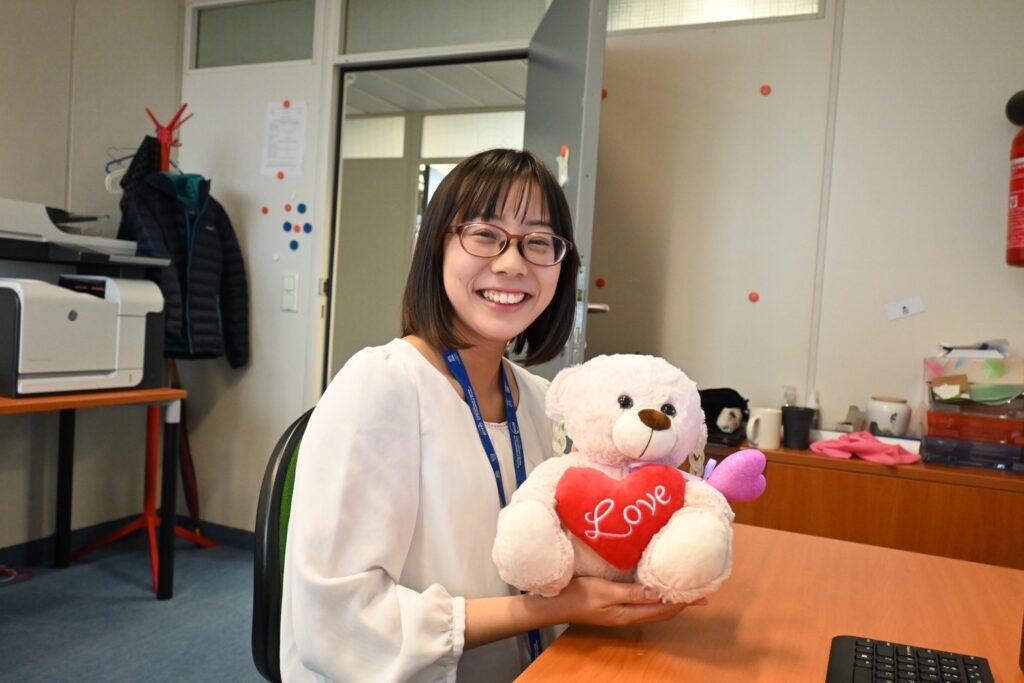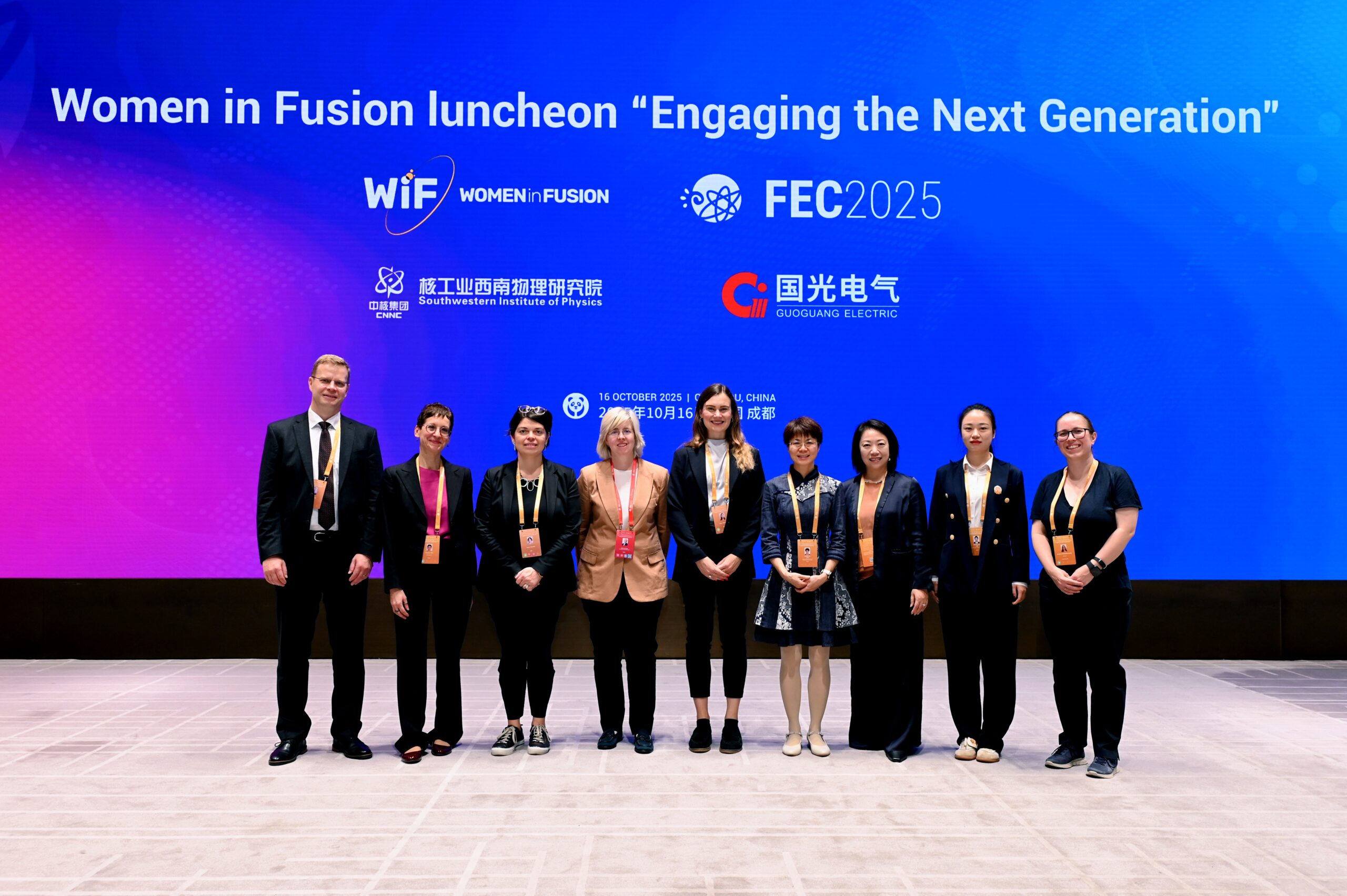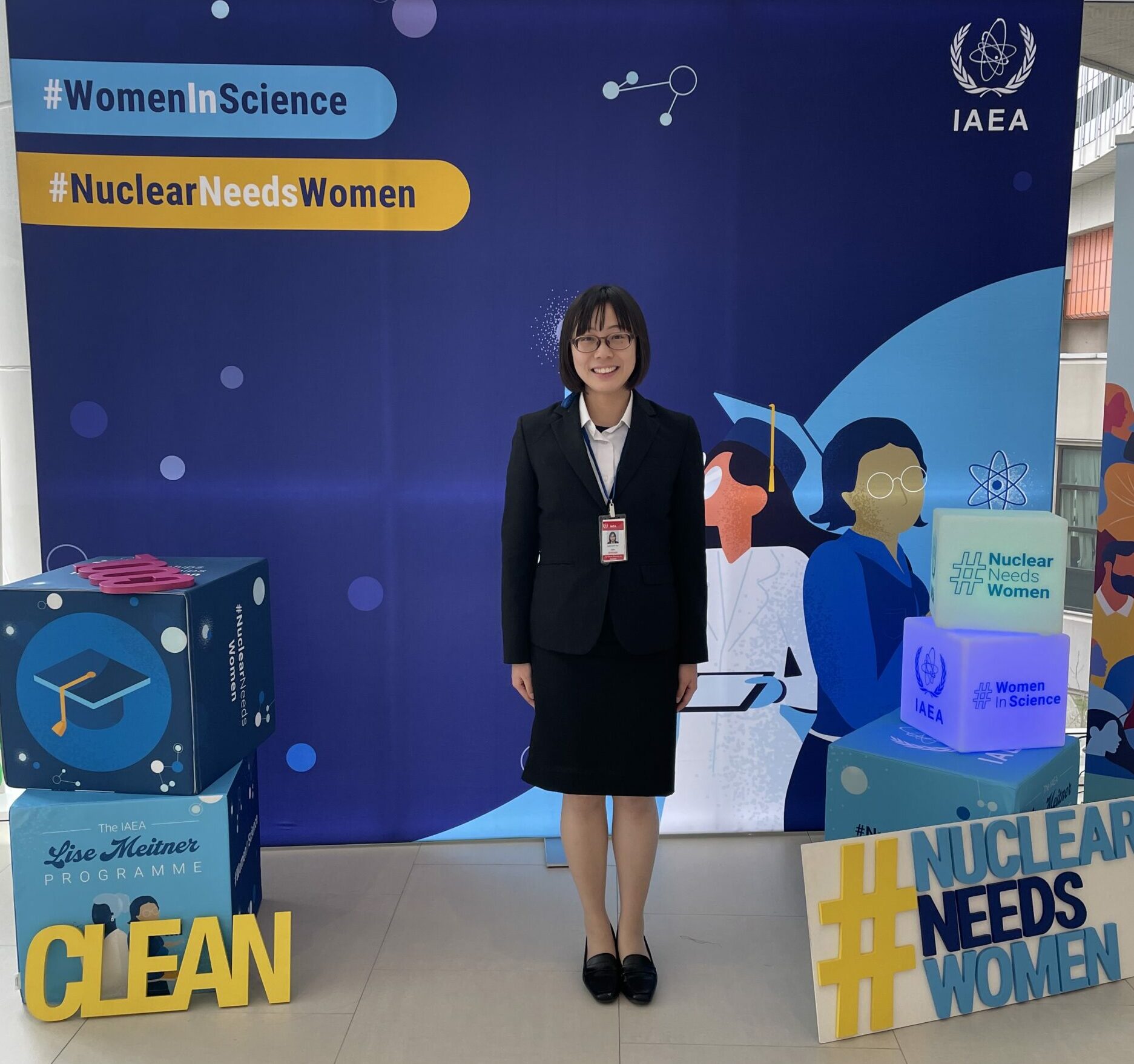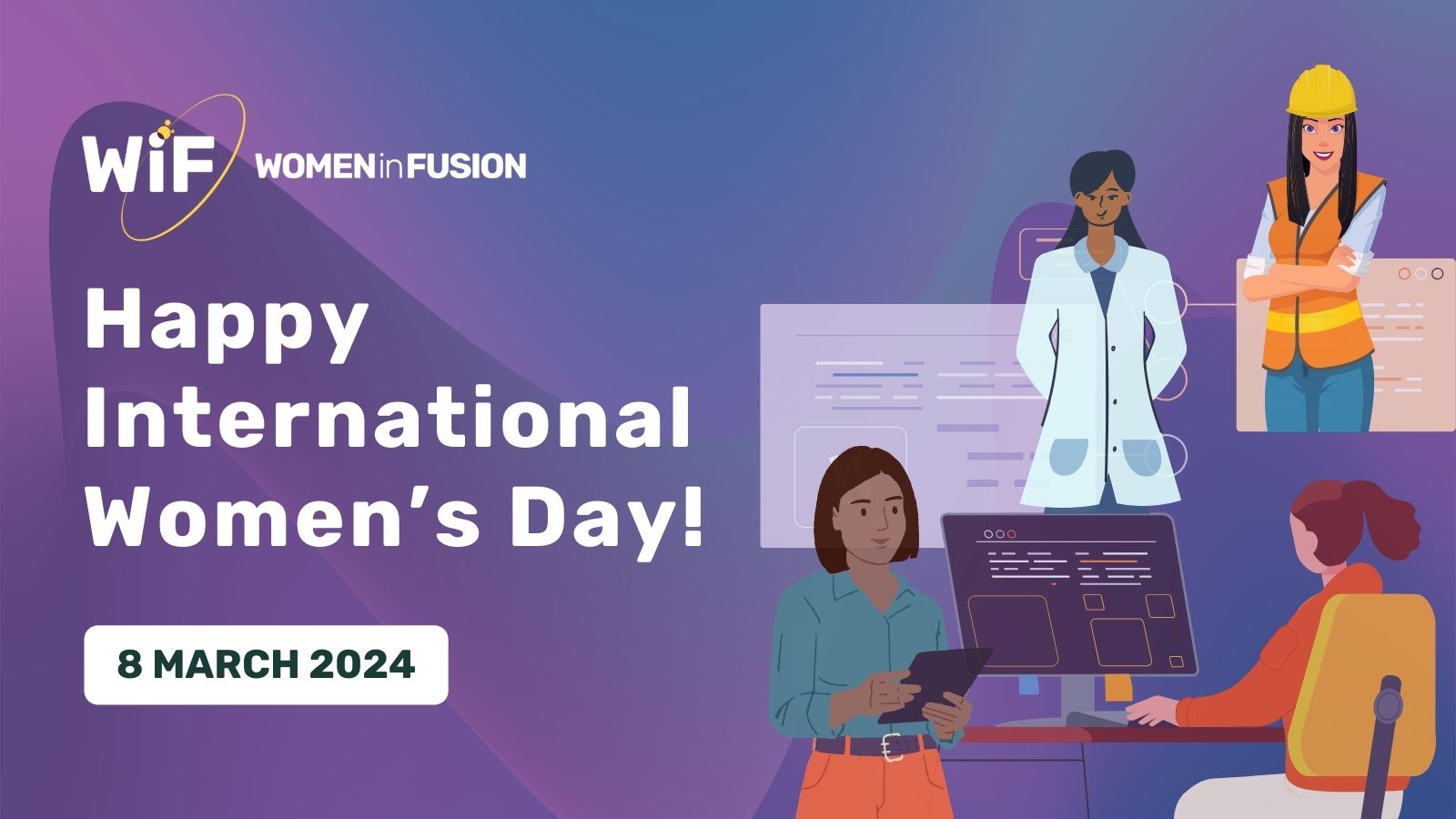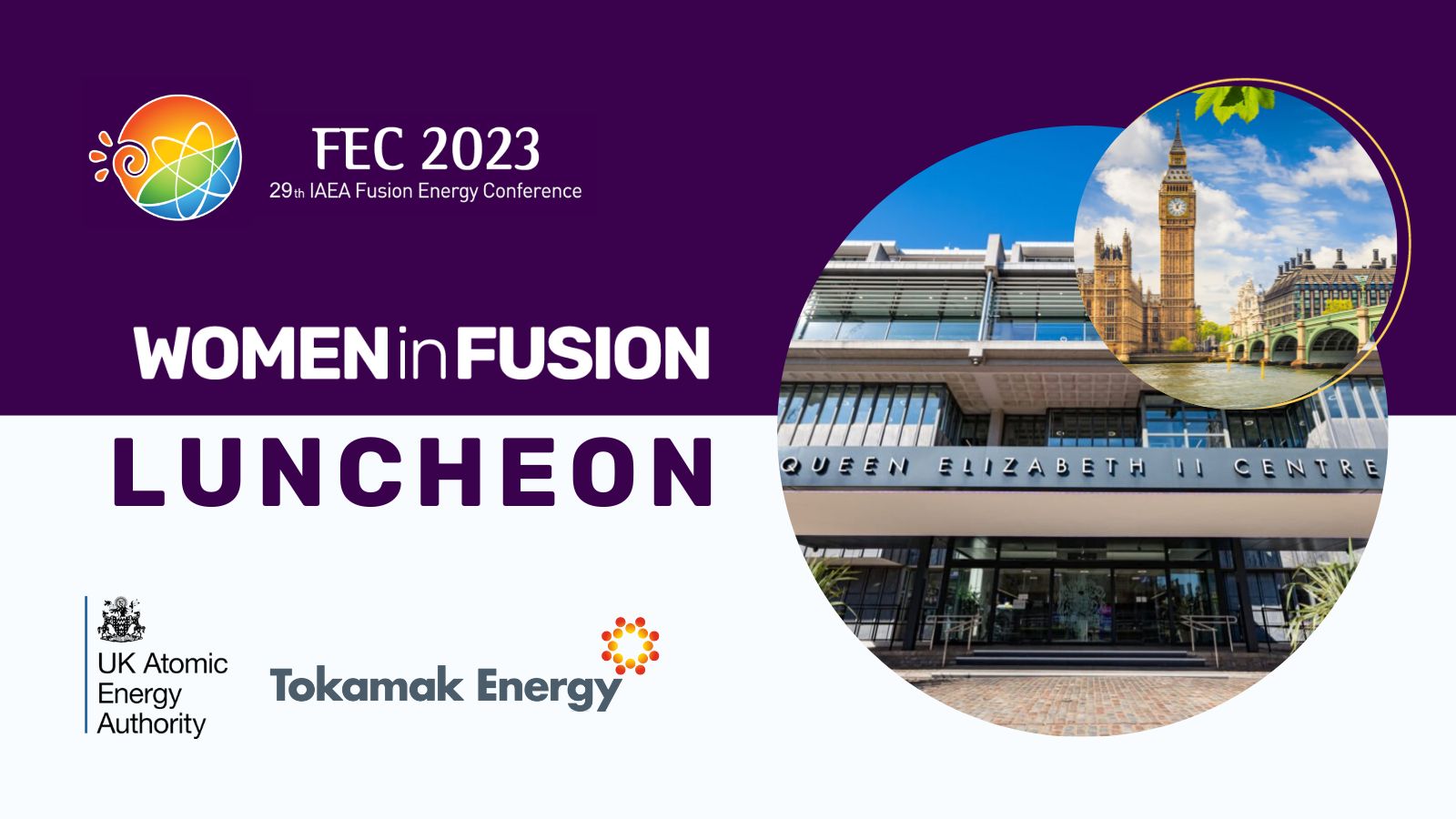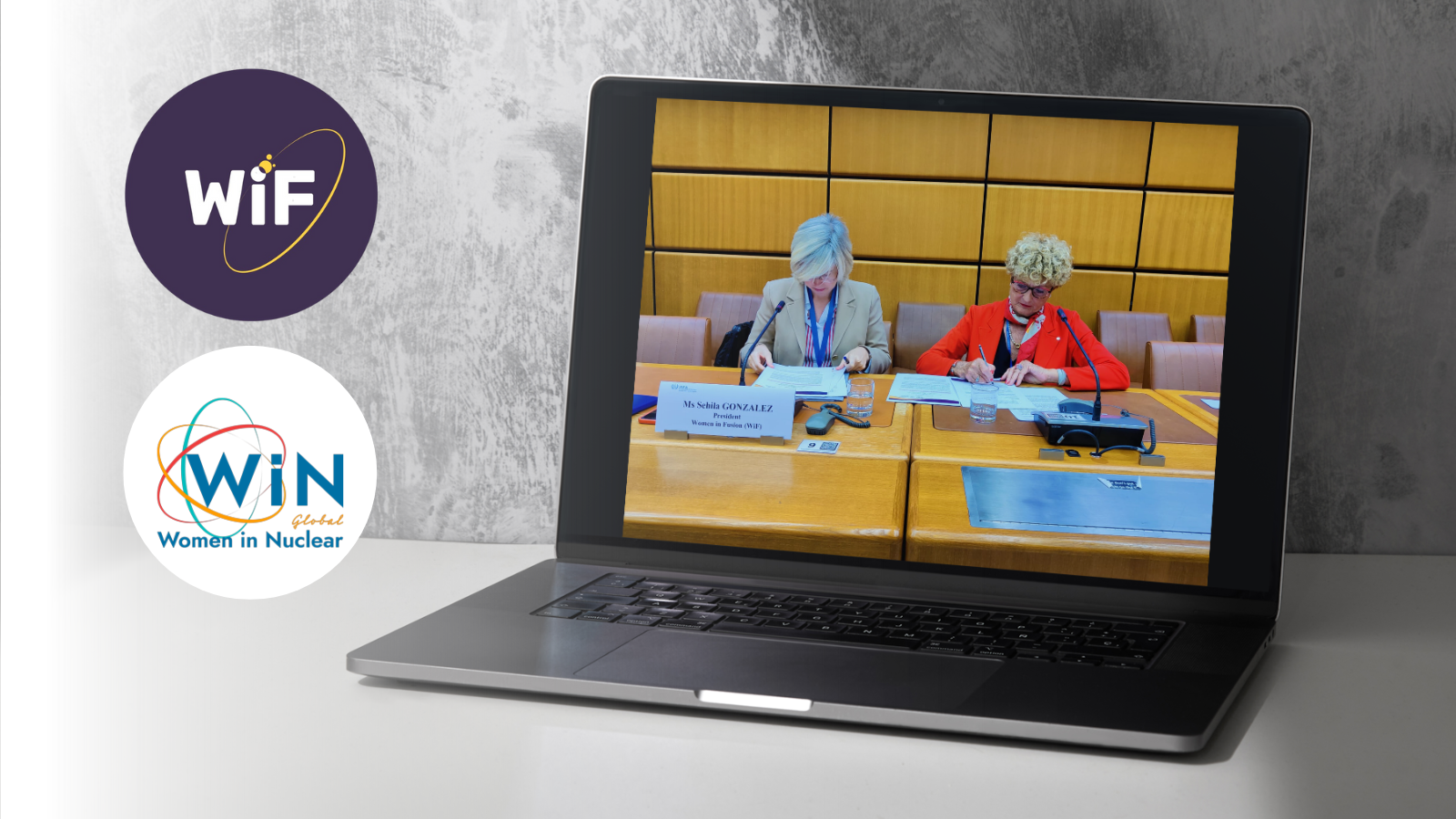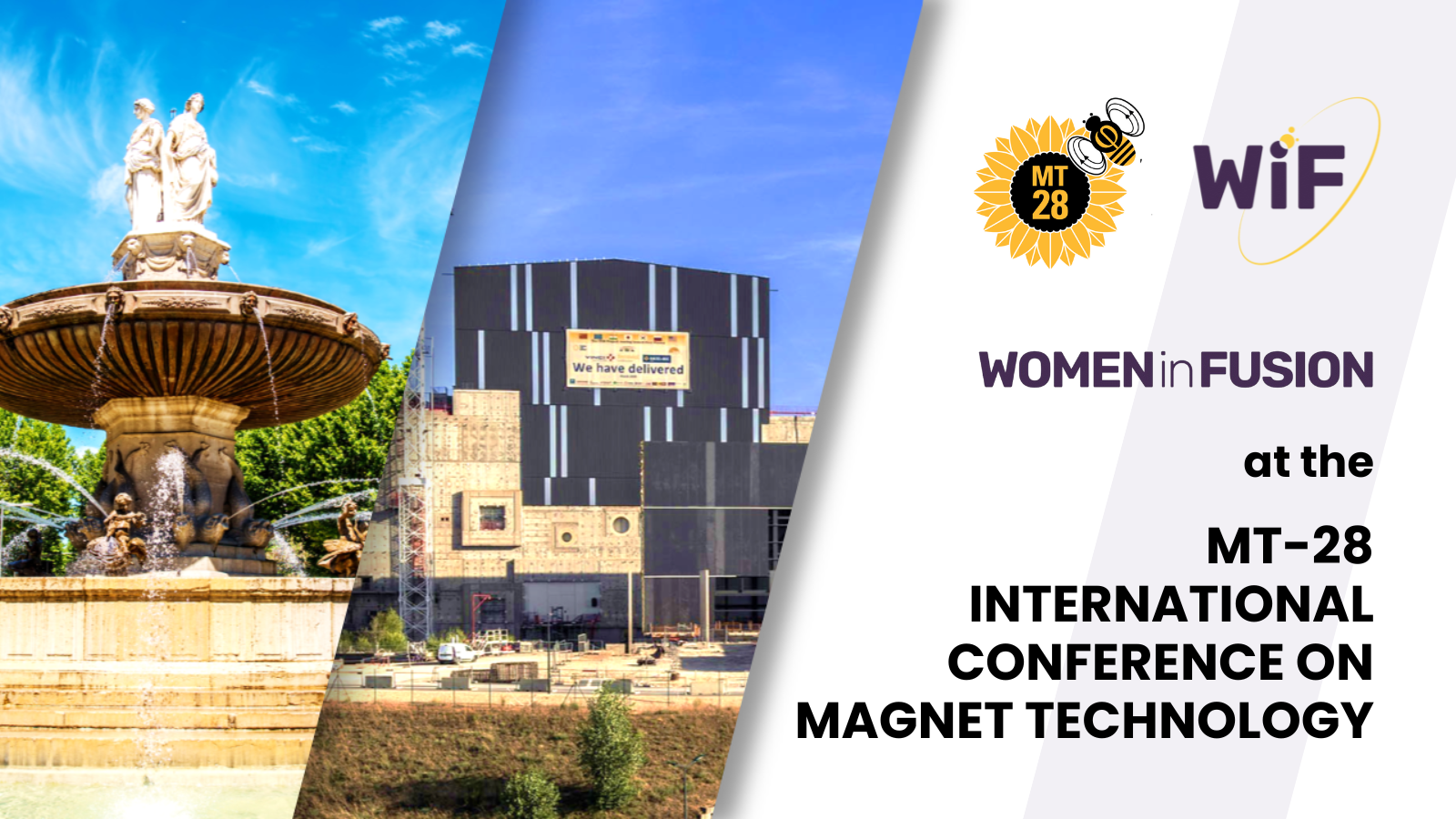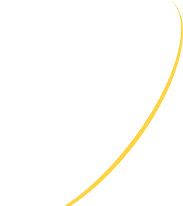Risa’s interest in nuclear engineering began in junior high when she worked at a large hospital, where she gained experience in radiation uses for medical purposes. In university she chose to study physics, majoring in quantum physics. “I like the small worlds that physics can explain. Even particles and atoms fascinate me” she says. However, her interests later shifted to nuclear engineering, which had become her “dream field”.
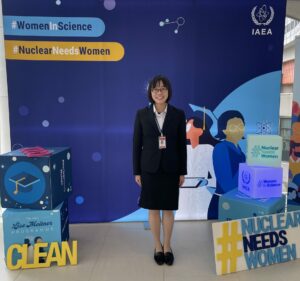 Risa seized the opportunity to intern at the IAEA (International Atomic Energy Agency) through a program with Tokyo Tech. It was there that she worked on nuclear data evaluation, due to its strategic importance to the field. “Nuclear data is fundamental for all aspects of nuclear engineering, including nuclear reactors, accelerators, and medical facilities. When constructing materials, we must carefully consider the reactions they will undergo,” she says. By leveraging machine learning methods, particularly Google’s TensorFlow software, she was able to accurately evaluate vast amounts of data.
Risa seized the opportunity to intern at the IAEA (International Atomic Energy Agency) through a program with Tokyo Tech. It was there that she worked on nuclear data evaluation, due to its strategic importance to the field. “Nuclear data is fundamental for all aspects of nuclear engineering, including nuclear reactors, accelerators, and medical facilities. When constructing materials, we must carefully consider the reactions they will undergo,” she says. By leveraging machine learning methods, particularly Google’s TensorFlow software, she was able to accurately evaluate vast amounts of data.
Risa’s Master and Ph.D research is focused on non-destructive techniques to detect fuel and activated materials. Her recently awarded fellowship in the IAEA Marie Skłodowska-Curie Fellowship Programme will play a crucial role in her PhD and provide a great research opportunities abroad. Currently her research aims specifically to address security and safety problems which arise when irradiated materials are removed from a reactor.
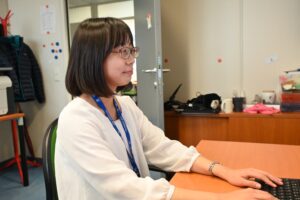 The versatility of her research is what drew her to it. “This research not only contributes to fission, but also it is relevant for fusion energy. For instance, when materials are under irradiation in a fusion machine, they transform into waste material over time. In addition to safety and security, irradiation may raise a safeguarding concern in the case if nuclear materials are exposed to irradiation. My research can address security issues related to both fission and fusion reactors,” Risa explains.
The versatility of her research is what drew her to it. “This research not only contributes to fission, but also it is relevant for fusion energy. For instance, when materials are under irradiation in a fusion machine, they transform into waste material over time. In addition to safety and security, irradiation may raise a safeguarding concern in the case if nuclear materials are exposed to irradiation. My research can address security issues related to both fission and fusion reactors,” Risa explains.
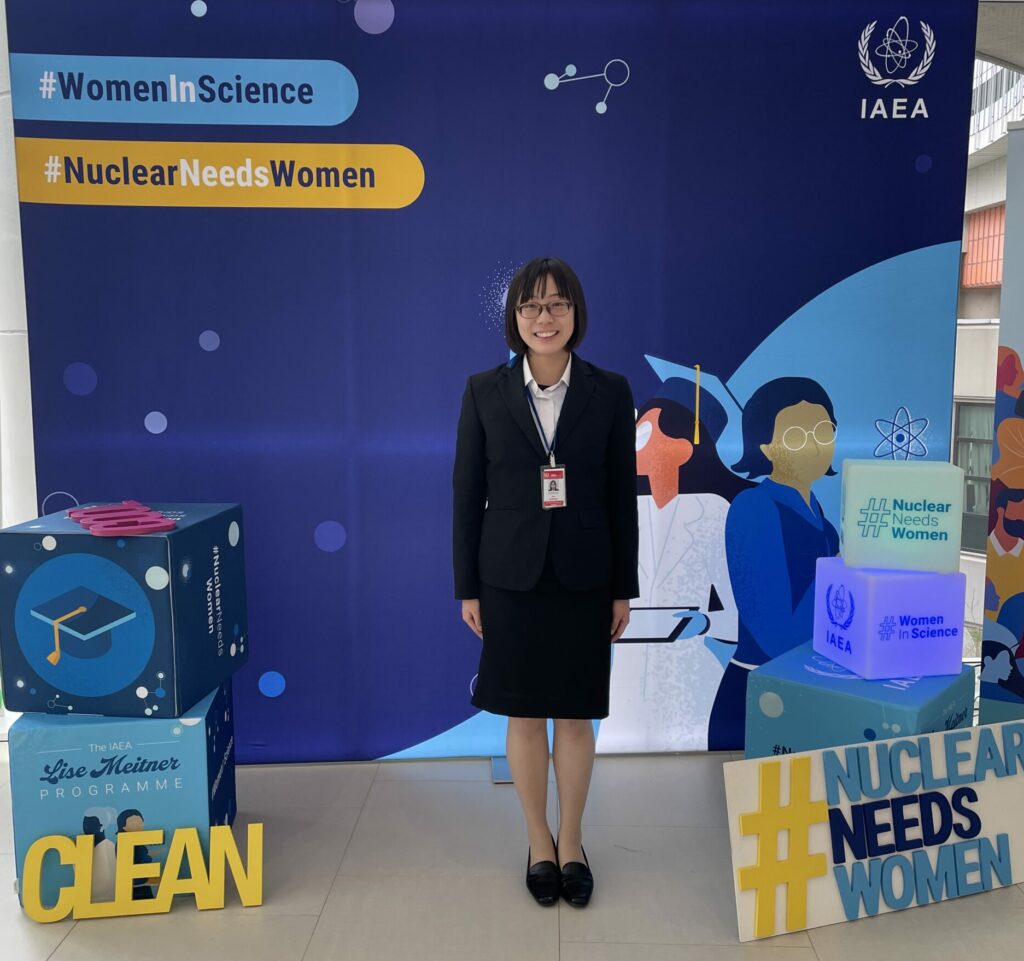
The support of her peers has been instrumental throughout her career, for instance during her time in Vienna, while also providing opportunities for growth and experiences abroad. At home she has a strong support system as well. “My professor, Professor Katabuchi, helped me a lot, he was an ally. Even when I was at the IAEA, he often sent me messages, and we cooperated with each other,” she tells us. Risa’s vision, drive and networking skills have helped her forge a blossoming successful career in fusion. Risa is well on her way to making meaningful contributions to the field and we look forward to following her career path as an inspiration to many other women in fusion.
